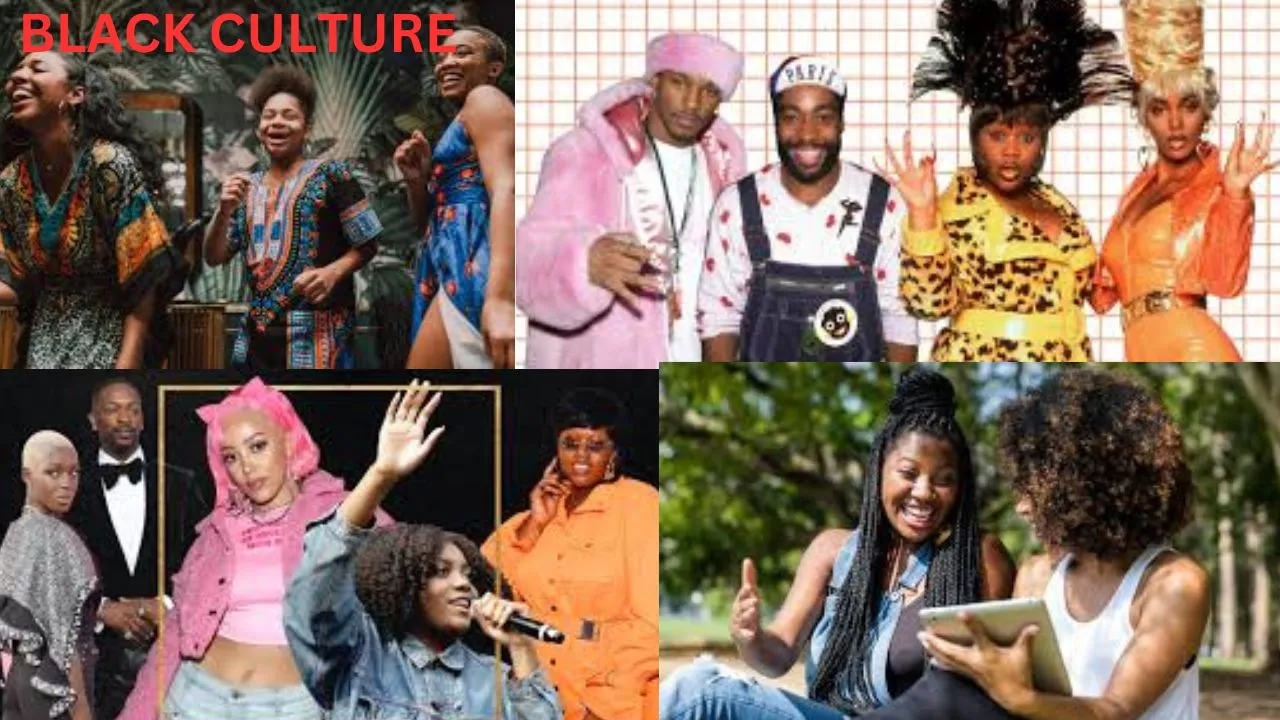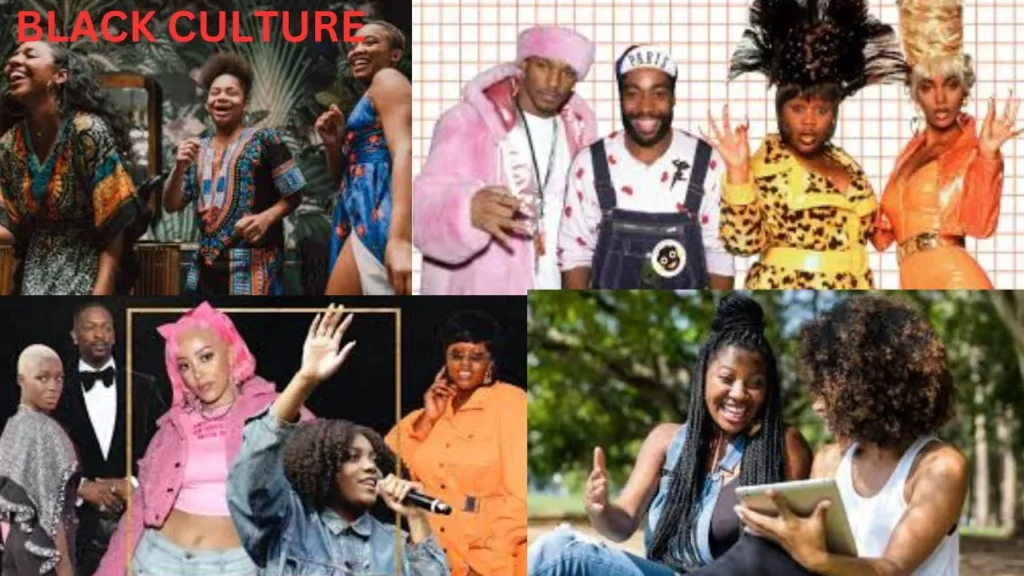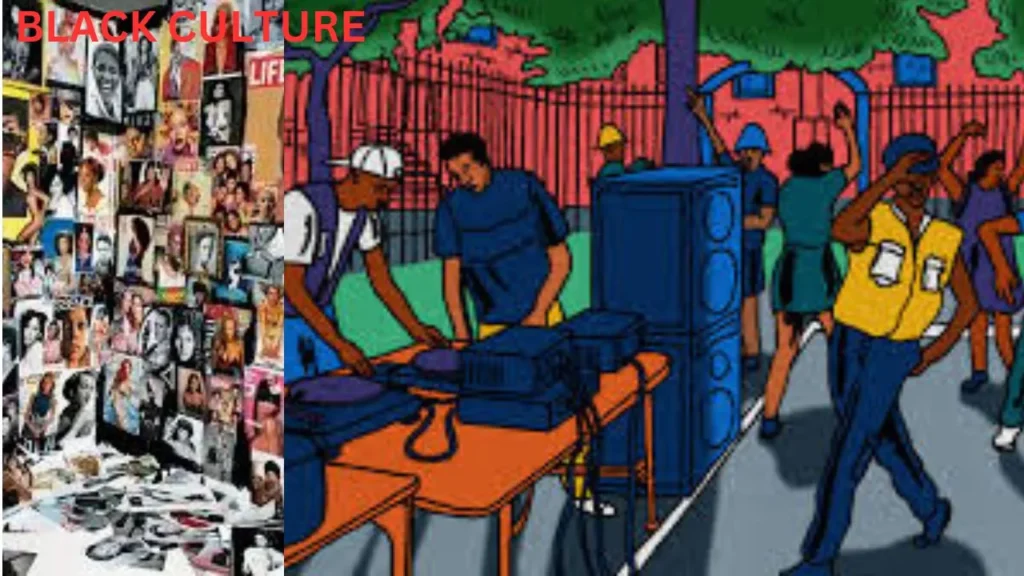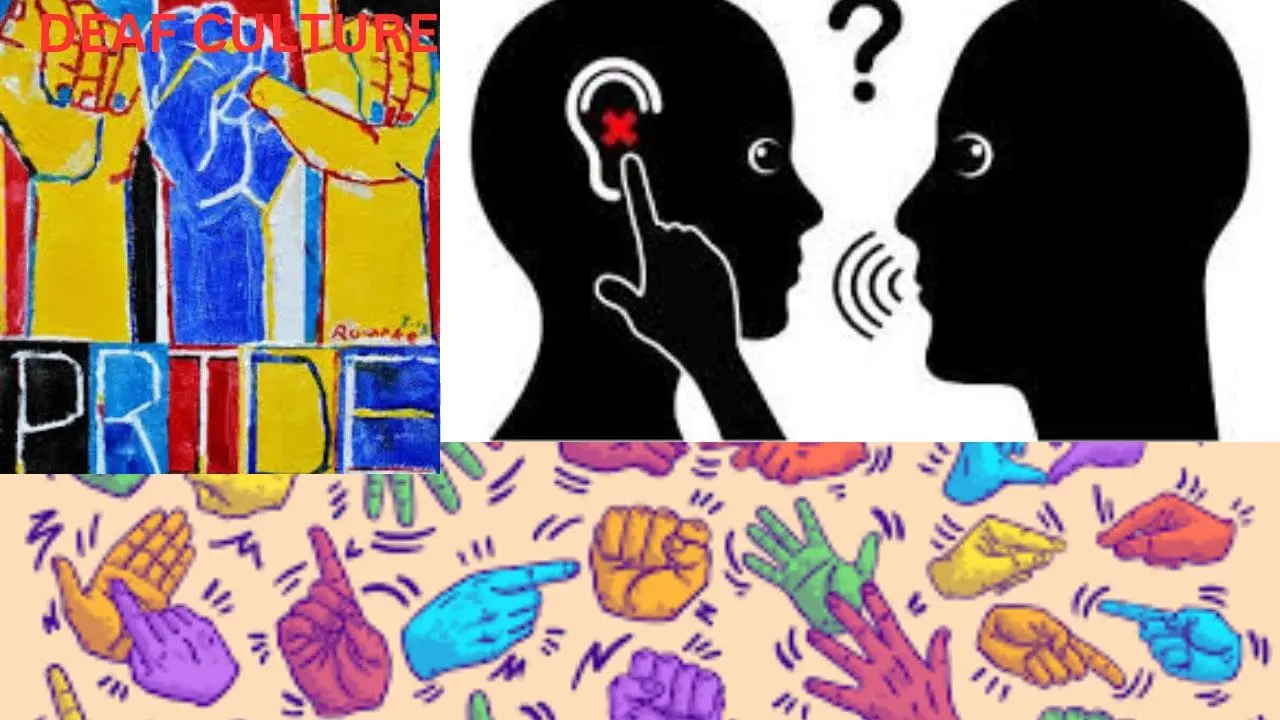
Black culture
Admin
- 0
Black culture is a rich and diverse tapestry that has played a significant role in shaping various aspects of society. From its traditions to its cuisine, clothing, and symbols, black culture holds a special place in America and beyond. In this article, we will explore the different facets of black culture, delve into its history, and examine its values and significance.
Black Culture Traditions
- Black culture is known for its vibrant and enduring traditions that have been passed down through generations. These traditions encompass a wide range of practices, such as music, dance, storytelling, and more. One of the most prominent traditions in black culture is the celebration of Juneteenth, which commemorates the emancipation of enslaved African Americans in the United States.
- Another vital tradition is the African diaspora’s influence on various art forms, including visual arts, literature, and theater. The African diaspora has greatly contributed to the development of these artistic expressions, infusing them with unique perspectives and narratives.
- Music is a cornerstone of black culture, with genres like jazz, blues, gospel, and hip-hop originating from the African American community. These musical styles have not only shaped the cultural landscape of America but have also influenced music worldwide, leaving a lasting impact on the global music scene.
- In addition to music, black culture is rich in culinary traditions that reflect a blend of African, European, and Native American influences. Soul food, for example, is a cuisine deeply rooted in the history of African Americans, featuring dishes like fried chicken, collard greens, and cornbread. These traditional recipes have been passed down through families for generations, serving as a delicious link to the past and a celebration of resilience and creativity.
Black Culture Food
Food is an essential part of any culture, and black culture is no exception. Black cuisine, often referred to as soul food, is renowned for its rich flavors and comforting dishes. From mouthwatering fried chicken and collard greens to delectable cornbread and sweet potato pie, these dishes have become synonymous with black culture.
Black cultural food traditions also include dishes that are deeply rooted in African heritage. For example, jollof rice, a popular West African dish, has become a staple in many black households. The preparation and consumption of these traditional foods serve as a way to connect with ancestral roots and keep cultural practices alive.
Moreover, the history of soul food in America is a testament to the resilience and creativity of black communities. Born out of necessity during times of slavery and segregation, soul food represents a culinary tradition that has withstood centuries of hardship. The use of simple, inexpensive ingredients like offal and greens transformed into flavorful dishes showcases the resourcefulness and ingenuity of black cooks.
Additionally, the act of sharing a meal in black culture goes beyond mere sustenance; it is a communal experience that fosters bonds and strengthens relationships. Whether it’s a Sunday dinner with extended family or a neighborhood cookout, food plays a central role in bringing people together. The rituals and traditions surrounding black cuisine create a sense of unity and belonging, reinforcing the importance of food not just as nourishment but as a symbol of cultural pride and heritage.

Black Culture Market
- Black culture markets or black-owned businesses have played a vital role in supporting and promoting the black community. These markets are spaces where products and services that cater to the unique needs and preferences of the black community are readily available.
- Black culture markets not only provide economic opportunities for entrepreneurs but also serve as hubs for community engagement and empowerment. They create spaces where individuals can connect, network, and support each other, fostering a strong sense of community and solidarity.
- Furthermore, black culture markets often showcase a rich tapestry of cultural heritage and creativity. From handmade jewelry to traditional clothing, these markets offer a wide range of products that celebrate and honor the diverse traditions and artistry within the black community. By supporting these businesses, individuals not only gain access to unique and authentic goods but also contribute to preserving and promoting black culture.
- Moreover, black culture markets are not just places to buy and sell goods; they are also platforms for celebrating black excellence and talent. Many markets host events such as live music performances, art exhibitions, and cultural festivals that highlight the creativity and innovation of black artists and creators. These events not only entertain and inspire attendees but also serve as opportunities to showcase the vibrancy and richness of black culture.
Black Culture Clothing
Clothing has always been an integral part of expressing one’s identity and culture. Black culture clothing encompasses a wide range of styles, each with its own distinct significance.
From African traditional attire, such as dashikis and kaftans, to the more contemporary urban fashion popularized by black artists and fashion designers, black culture clothing is a testament to creativity and individuality. Dressing in culturally significant attire is not only a way to celebrate and honor one’s heritage but also serves as a form of self-expression and pride.
The rich history of black culture clothing is deeply intertwined with the struggles and triumphs of the African diaspora. Each garment tells a story of resilience, resistance, and resilience. For example, the dashiki, a colorful loose-fitting tunic, originated in West Africa and was later adopted as a symbol of black pride and solidarity during the civil rights movement in the United States.
Furthermore, the evolution of black culture clothing continues to be influenced by a myriad of factors, including music, art, politics, and social movements. The rise of hip-hop culture in the 1980s, for instance, brought baggy jeans, oversized t-shirts, and sneakers to the forefront of urban fashion, creating a distinctive style that resonated with black youth around the world.
Black Culture in America
Black culture has played a transformative role in shaping American society. From the early days of slavery to the civil rights movement, black culture has been a powerful force in inspiring change and challenging social norms.
Through influential figures like Martin Luther King Jr., Rosa Parks, and Malcolm X, black culture has given rise to a wave of activism, pushing for equal rights and social justice. Black music, such as jazz, blues, and hip-hop, has also had a profound impact on American art and popular culture, influencing everything from fashion to film.
Black Culture Symbols
Symbols are important in any culture as they represent shared values, beliefs, and history. Black culture has several symbols that hold deep meaning and cultural significance.
The African mask, for example, symbolizes ancestral connection and spiritual power. It represents the rich cultural heritage and artistic expression of African communities. The colors red, black, and green are also prominent symbols in black culture, representing unity, strength, and resilience.
What is Black Culture?
Black culture is a complex and multifaceted concept that encompasses a wide range of traditions, values, and symbols. It is an expression of the African diaspora’s collective experiences and serves as a source of identity, pride, and resilience.
Black culture is not limited to any specific geography or ethnicity but is a global phenomenon that has transcended borders and influenced numerous societies. It is a celebration of diversity, creativity, and the ability to overcome adversity.
What are the Values of Black Culture?
Black culture values community, family, and spirituality. These values are deeply rooted in African traditions and have been carried forward through generations.
Community plays a crucial role in black culture, with a strong emphasis on supporting and uplifting one another. The concept of Ubuntu, an African philosophy that emphasizes interconnectedness and collective responsibility, resonates strongly within the black community.
Family is another fundamental value in black culture. It encompasses not only immediate family but also extended relatives and chosen families. Family bonds are cherished and serve as a source of strength, love, and guidance through life’s challenges.
Spirituality is deeply ingrained in black culture, with a strong connection to African diasporic religions and practices. Spirituality provides a sense of grounding, hope, and connection to ancestors.

Who Said Black is Beautiful?
The phrase “Black is Beautiful” originated during the Black Power movement in the 1960s. It was a powerful and affirmative slogan that sought to challenge and dismantle the prevailing notion of white supremacy and Eurocentric beauty standards.
Black is Beautiful became a rallying cry, promoting self-acceptance and pride in black heritage, features, and culture. The phrase served as a catalyst for black empowerment, encouraging individuals to embrace their natural beauty and reject societal pressures to conform to Eurocentric ideals.
How to Learn About Black Culture?
To learn about black culture, it is essential to approach it with an open mind and genuine curiosity. There are several avenues available to deepen your understanding and appreciation for black culture.
Books, films, and documentaries offer valuable insights into the history, traditions, and contributions of black culture. Exploring the works of black authors, filmmakers, and scholars can provide a diverse range of perspectives and narratives.
Engaging with the black community through cultural events, festivals, and organizations can also foster a deeper understanding of black culture. These spaces offer opportunities for dialogue, learning, and celebration of black traditions.
Conclusion
Black culture is a vibrant and influential force that has shaped and enriched societies around the world. From its traditions to its cuisine, clothing, and symbols, black culture is a testament to the resilience, creativity, and collective identity of the African diaspora.
By celebrating and learning about black culture, we have the opportunity to embrace diversity, challenge stereotypes, and build a more inclusive and equitable world for all.

